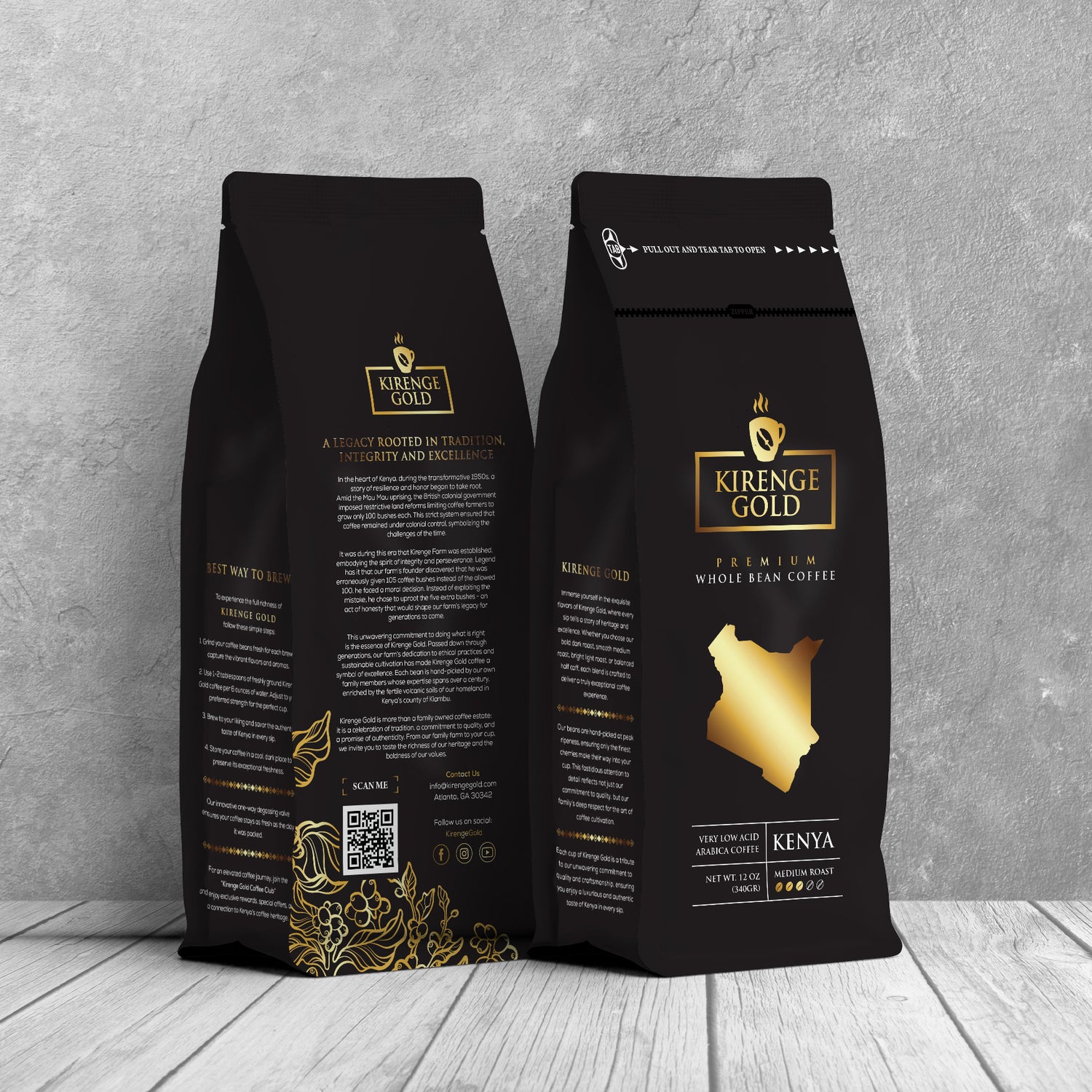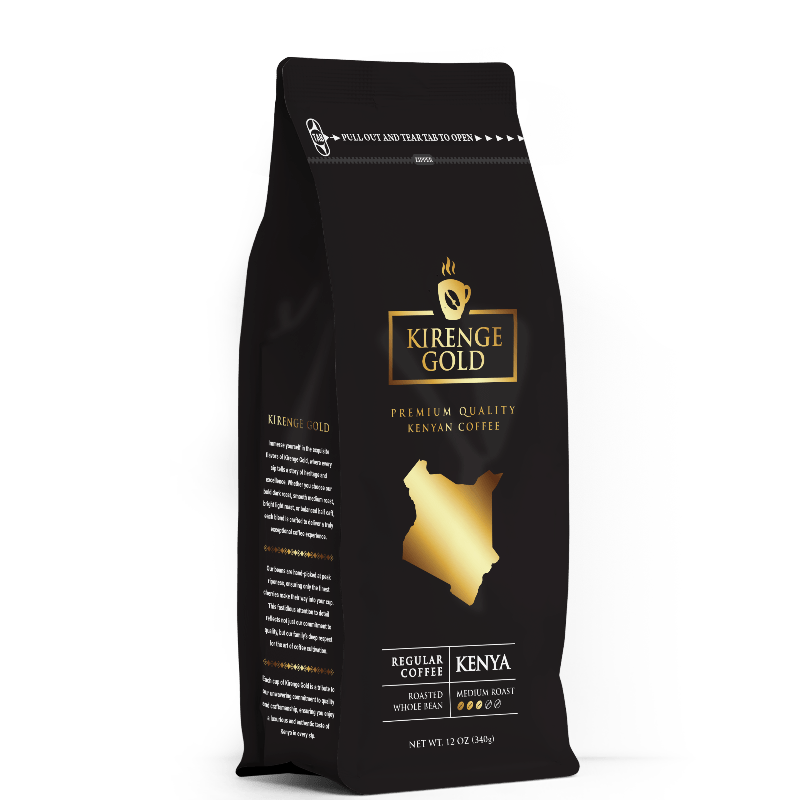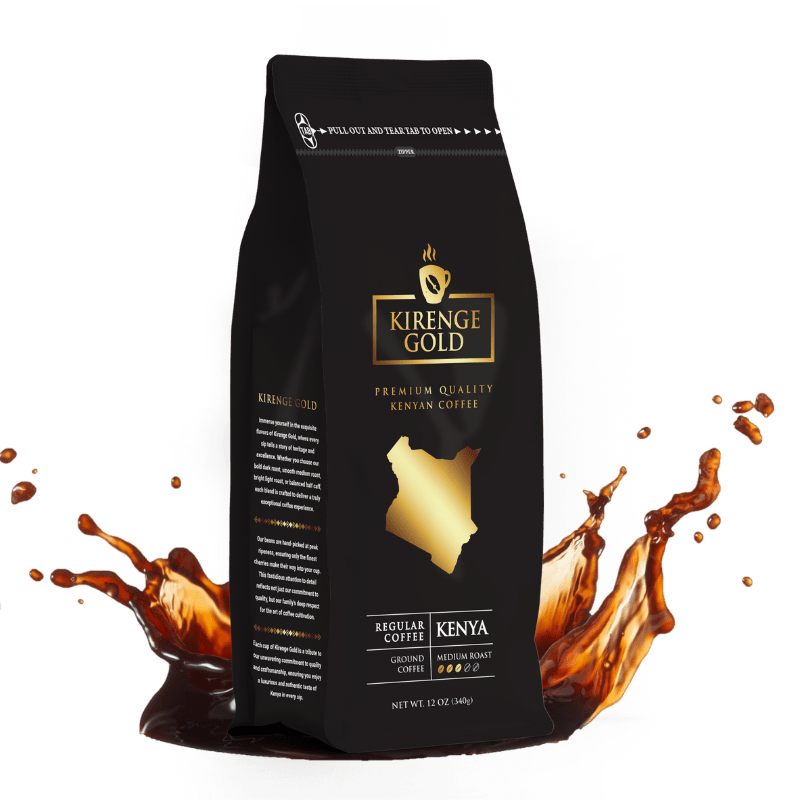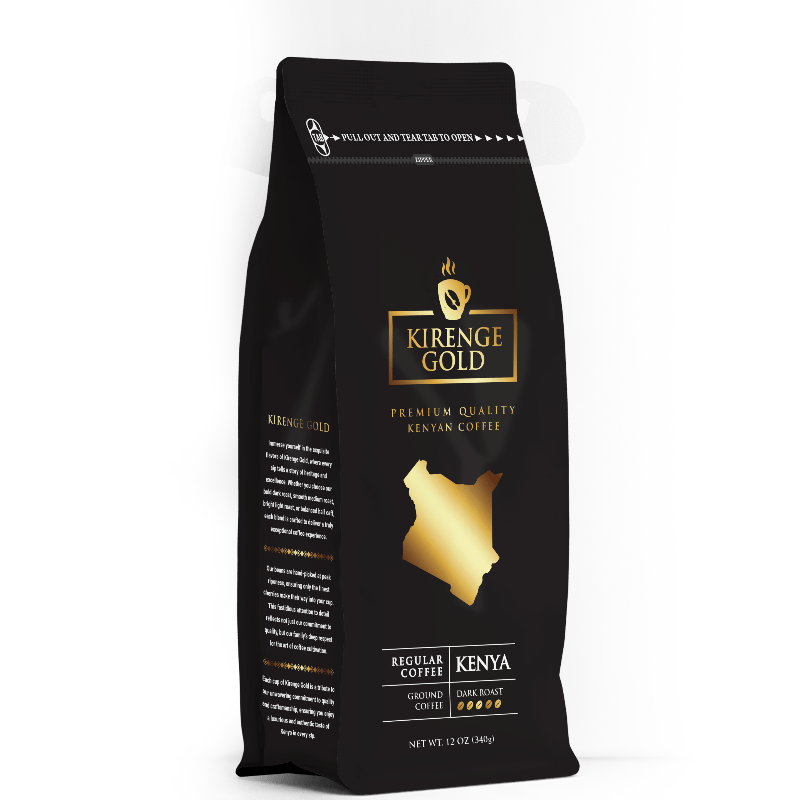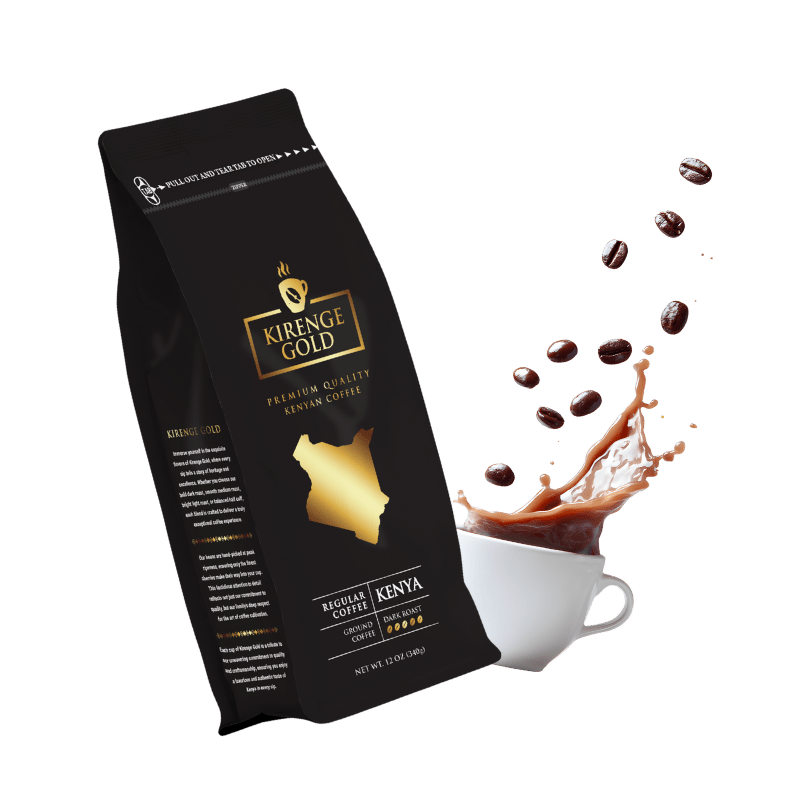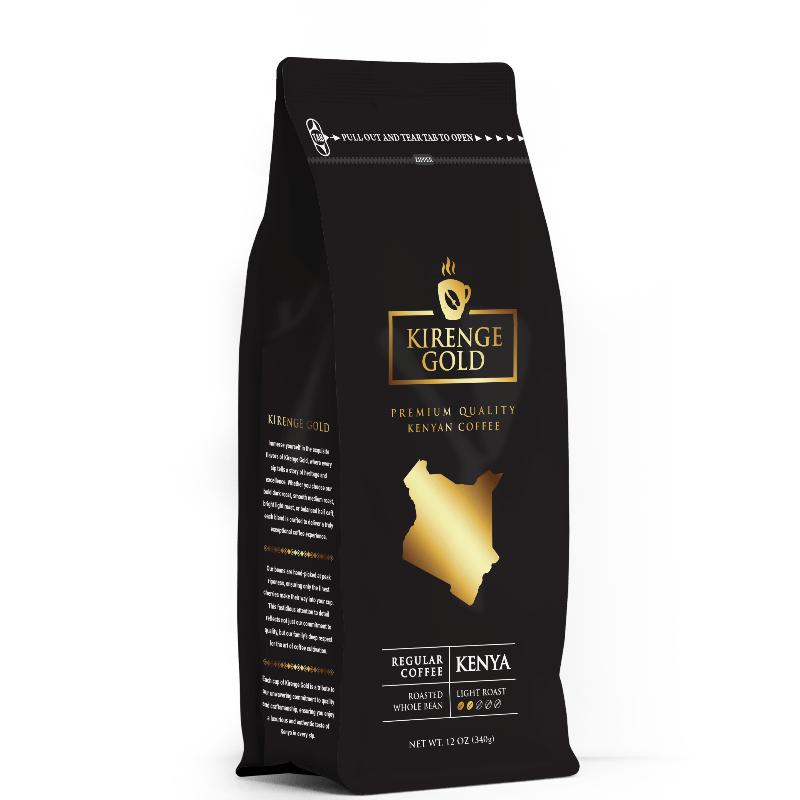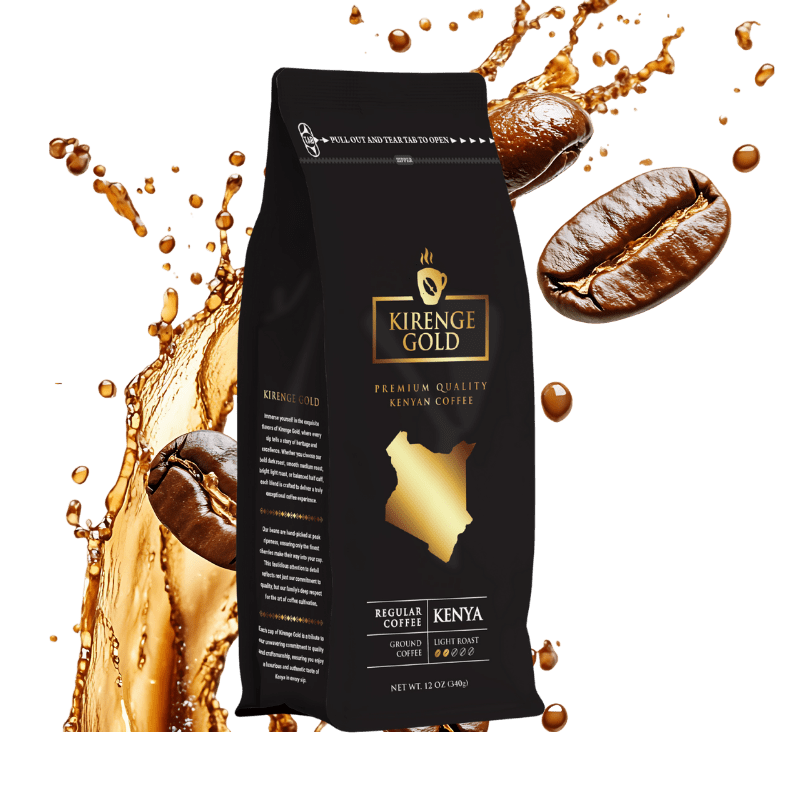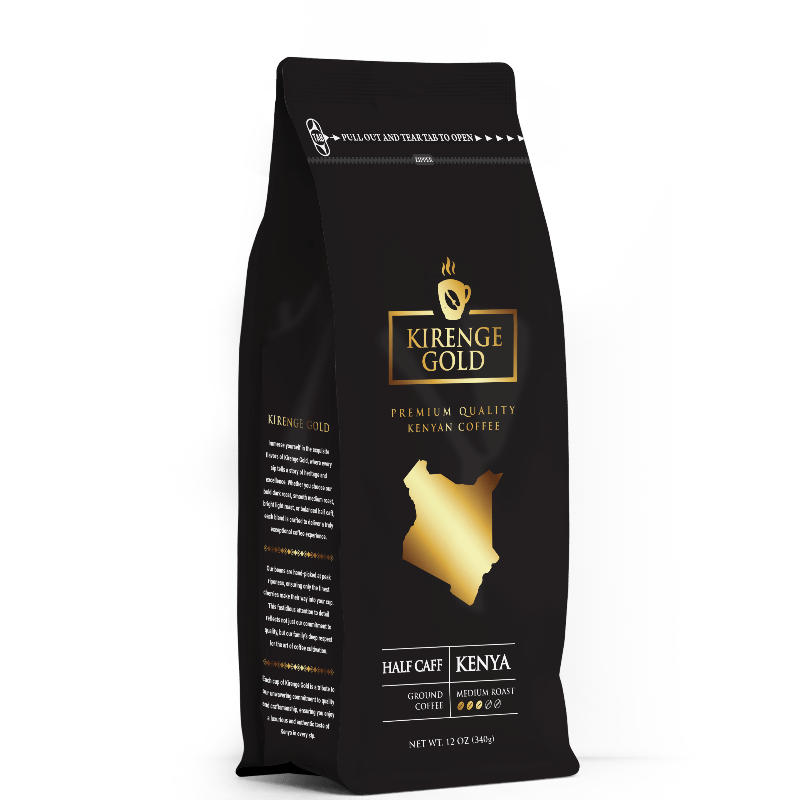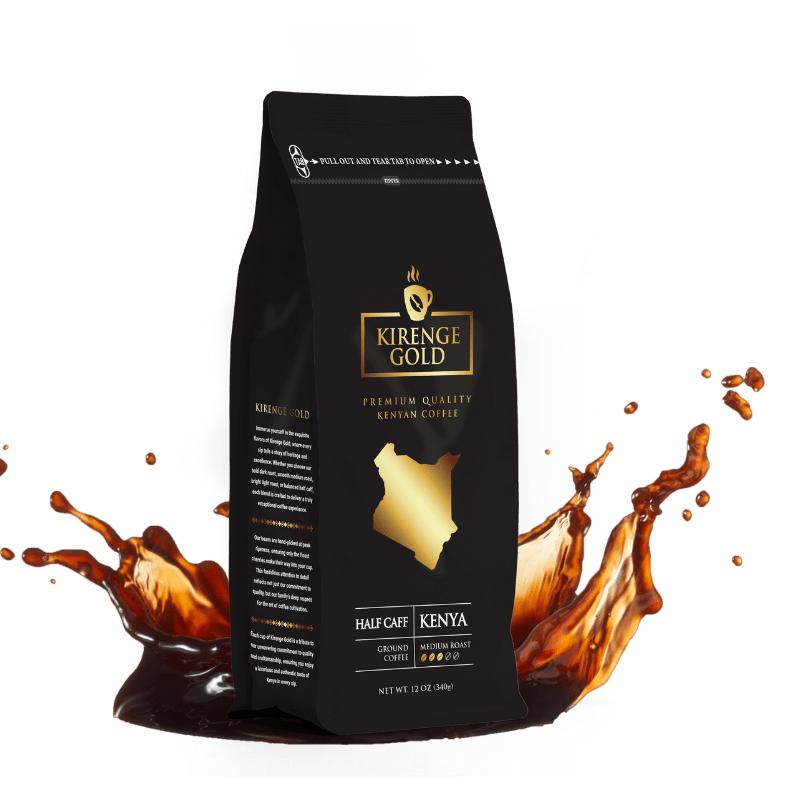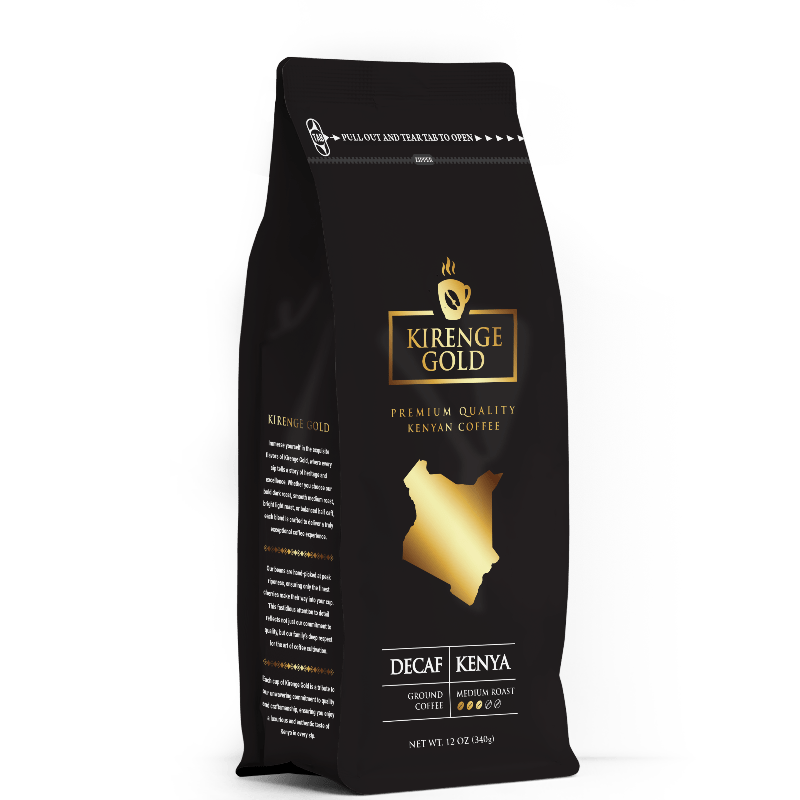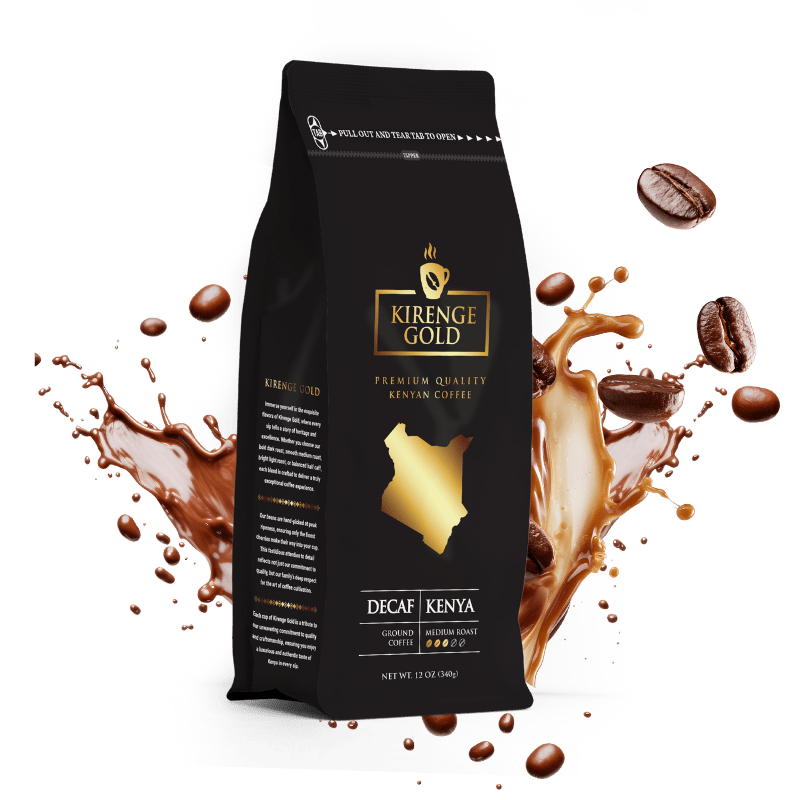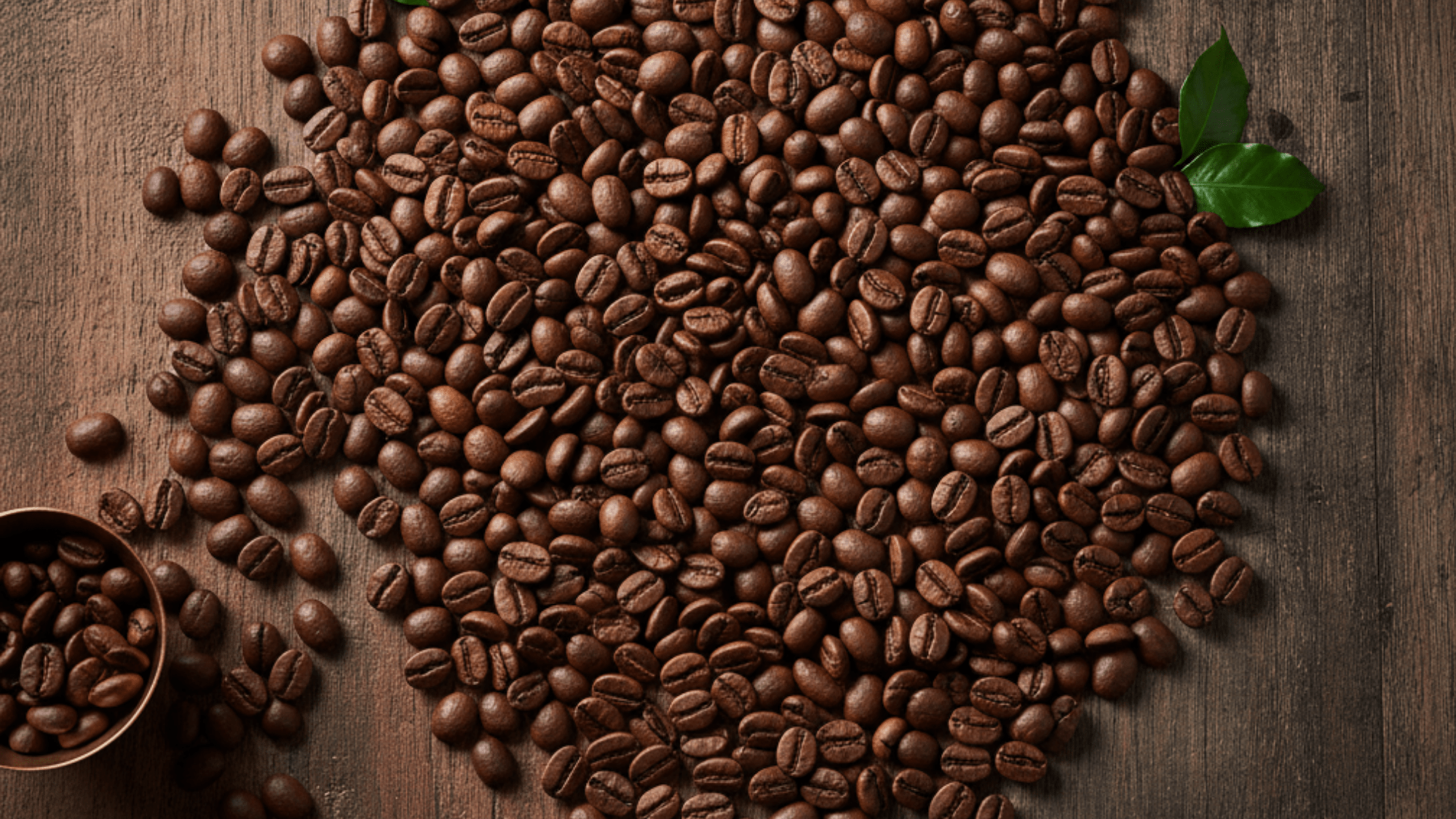
What Makes AA-Grade Kenyan Coffee Unique?
Why AA-Grade Kenyan Coffee Is the Gold Standard
In the world of specialty coffee, few names command as much respect as Kenyan AA coffee. For over 60 years, it has earned a reputation for excellence among premium roasters and discerning coffee enthusiasts worldwide. But what exactly makes AA-grade Kenyan coffee beans so special?
From the fertile volcanic soils of Kenya's highlands to the meticulous grading system that sets AA beans apart, this guide reveals why premium Kenyan coffee—especially AA-grade beans—stands among the finest single-origin coffees in the world.
The Origins of Kenyan Coffee Excellence
Kenya's coffee industry has a relatively young history compared to neighboring Ethiopia, but it quickly rose to global prominence. Today, Kenyan coffee is considered one of the most premium single-origin coffees available.
What Makes Kenyan Coffee Growing Regions Special?
Perfect Growing Conditions:
- High altitude: Coffee grows at 1,500–2,100 meters (4,900-6,900 feet) above sea level
- Cool temperatures: Average 13-26°C (55-79°F) year-round promotes slow bean maturation
- Volcanic soil: Rich in phosphoric acid and minerals, creating distinctive flavor profiles
- Ideal rainfall: Two rainy seasons provide consistent moisture for cherry development
Key Growing Regions:
- Kiambu County: Near Nairobi, known for balanced acidity and sweetness
- Nyeri: High elevation, intense fruit flavors
- Kirinyaga: Bright, wine-like characteristics
- Murang'a: Complex, layered profiles
These natural factors create the perfect environment for coffee with the bright acidity and complex fruity flavors that define Kenyan coffee excellence.
Explore our Kenyan coffee collection sourced from Kiambu County
Understanding the AA Grading: What Does It Really Mean?
The term "AA" refers to Kenya's unique coffee grading system. Unlike many coffee-producing countries that classify beans by region alone, Kenya developed a comprehensive system based on bean size, shape, and quality.
Complete Kenyan Coffee Grading System:
| Grade | Screen Size | Description | Quality Level |
|---|---|---|---|
| AA | 17-18 (6.80-7.20mm) | Largest beans, highest quality | Premium |
| AB | 15-16 (6.00-6.80mm) | Medium-large beans | High quality |
| PB (Peaberry) | Varies | Single round bean | Specialty |
| C | 14-15 (5.60-6.00mm) | Smaller beans | Good quality |
Why AA-Grade Matters:
🔍 Key Point: AA doesn't just mean "big beans"—it represents:
- Top-tier quality: Only 30-40% of a harvest achieves AA grade
- Exceptional flavor: Larger surface area ensures even roasting and fuller flavor development
- Premium pricing: AA beans command 15-30% higher prices than lower grades
- Consistency: Uniform size creates predictable brewing results
The AA designation signals beans that have been meticulously sorted, ensuring you receive only the finest Kenyan coffee beans available.

☕ Flavor Profile: What Makes AA Coffee Special in Your Cup
What truly makes AA-grade Kenyan coffee prized worldwide is its distinctive, complex flavor profile that's impossible to replicate.
Signature Tasting Notes of Kenyan AA:
Primary Flavors:
- 🍇 Blackcurrant: The hallmark characteristic of premium Kenyan coffee
- 🍒 Red berries: Cherry, raspberry, cranberry notes
- 🍊 Citrus brightness: Grapefruit, orange, lemon
- 🍷 Wine-like acidity: Complex, layered, never harsh
Secondary Notes:
- 🍫 Dark chocolate: Especially in medium-dark roasts
- 🍯 Caramel sweetness: Brown sugar, toffee undertones
- 🌺 Floral aromatics: Jasmine, bergamot hints
Sensory Characteristics:
- Acidity: Bright, crisp, wine-like (not sour)
- Body: Medium to full, silky mouthfeel
- Finish: Clean, long-lasting, complex
- Aroma: Intensely fragrant with fruity and floral notes
Expert Quote: Kenyan AA is often called the "champagne of coffee" due to its effervescent acidity and celebration-worthy complexity.
Shop AA-grade coffee in three roast levels
Why Bean Size Matters: The Science Behind Quality
Does bean size really affect coffee quality? In the case of Kenyan AA coffee, absolutely—and here's the science:
The Advantages of Larger Beans:
1. Even Roasting and Flavor Development
- More uniform internal structure ensures consistent heat penetration
- Reduces risk of under-developed or scorched beans
- Creates predictable, repeatable flavor profiles
2. Higher Density from High-Altitude Growing
- AA beans typically grow at 1,800+ meters elevation
- Cooler temperatures slow maturation (6-9 months vs 3-4 months)
- Extended development allows complex sugars to form
- Denser beans = more concentrated flavors
3. Better Cup Quality
- Larger screen size filters out defects and immature beans
- Uniform size ensures even extraction during brewing
- Consistently high Specialty Coffee Association (SCA) scores of 85-90+
Research shows that high-altitude Arabica beans like Kenyan AA contain 15-20% more sucrose than lower-grown beans, directly contributing to sweetness and complexity.
Global Demand: Why Roasters Compete for Kenyan AA
Kenyan AA coffee consistently receives the highest ratings from specialty coffee roasters worldwide. Here's why it's so sought-after:
Why AA Commands Premium Prices:
1. Kenya's Unique Auction System
- Transparent weekly coffee auction at Nairobi Coffee Exchange
- Direct bidding creates competitive pricing based on quality
- Rewards farmers for excellence
- Ensures traceability from farm to cup
2. International Demand
- Specialty roasters in the US, Europe, and Asia actively seek AA beans
- Featured prominently in cafes and competition coffees
- Limited production creates natural exclusivity
3. Scarcity and Quality
- Kenya produces only ~50,000 metric tons annually
- AA represents just 30-40% of total harvest
- High quality + limited availability = premium value
Pricing Reality:
- Kenyan AA wholesale: $5-8 per pound (vs $2-3 for standard Arabica)
- Premium auction lots: $15+ per pound
- Retail: $18-25 per 12oz bag from quality roasters
Discover Kirenge Gold's direct-trade AA coffee from our family farm
Understanding the Premium Price: What You're Paying For
Kenyan AA coffee costs more than average coffee—here's exactly why it's worth it:
The True Cost of Excellence:
1. Labor-Intensive Harvesting
- Coffee cherries hand-picked at peak ripeness only
- Multiple passes through farms during harvest
- Requires 3-5x more labor than mechanical harvesting
2. Careful Processing
- Wet processing (washed method): More expensive, creates cleaner flavors
- 48-72 hour fermentation for proper flavor development
- Multiple washing stages to remove fruit mucilage
3. Strict Quality Control
- Hand-sorting to remove defects
- Electronic density sorting
- Multiple quality checkpoints
- Only 30-40% achieves AA grade
4. Fresh Roasting and Quick Shipping
- Small-batch roasting to preserve quality
- Careful roast profiling for origin characteristics
- Fast shipping to maintain freshness
When you buy AA-grade Kenyan coffee, you're investing in exceptional quality, sustainable farming, and fair farmer compensation—not just a commodity product.
Best Brewing Methods for Kenyan AA Coffee
To fully appreciate AA-grade Kenyan coffee beans, choose brewing methods that highlight its unique characteristics:
Recommended Brewing Methods:
1. Pour-Over (V60 or Chemex) ⭐ BEST FOR AA
Why it excels:
- Highlights bright, fruity acidity beautifully
- Clean paper filters showcase clarity and complexity
- Brings out wine-like characteristics
Quick recipe:
- Ratio: 1:16 (15g coffee : 240g water)
- Grind: Medium-fine (table sugar texture)
- Water: 200°F (93°C)
- Time: 2:30-3:30 total
Expected flavor: Bright blackcurrant, citrus, floral notes, clean finish
Read our complete pour-over brewing guide
2. French Press
Why it works:
- Emphasizes body and sweetness
- Brings out chocolate and caramel notes
- Easy, forgiving method
Quick recipe:
- Ratio: 1:15 (20g : 300g water)
- Grind: Coarse
- Steep: 4 minutes
- Press slowly
3. Espresso (For Adventurous Drinkers)
Why try it:
- Creates bold, fruit-forward shots
- Intense berry and citrus brightness
- Excellent in cappuccinos
Note: Kenyan AA makes vibrant, complex espresso—perfect for modern specialty coffee but different from traditional Italian-style shots.
4. Cold Brew
Why it's great:
- Smooth, naturally sweet, refreshing
- Lower acidity, berry flavors shine
- Perfect for warm weather
Pro Brewing Tips:
- Always grind fresh just before brewing
- Use filtered water to avoid off-flavors
- Optimal water temperature: 195-205°F
- Store properly: Airtight container, cool, dark place
- Use within 2-4 weeks of roast date

Supporting Kenyan Farmers and Sustainability
When you choose premium Kenyan AA coffee, you support sustainable agriculture and farming communities.
Your Purchase Impact:
Fair Compensation:
- Kenya's auction system ensures transparent, competitive pricing
- Quality rewarded with premium payments
- Farmers receive fair market value
Sustainable Practices:
- Traditional shade-grown methods
- Minimal chemical use
- Natural pest management
- Water conservation
Community Development:
- Coffee income funds education and healthcare
- Next-generation farmer training
- Women's empowerment initiatives
Kirenge Gold's Commitment:
At Kirenge Gold Coffee, our family has grown coffee in Kiambu County since the 1950s. We ensure:
- Direct sourcing from our family estate
- Fair compensation above market rates
- Sustainable, traditional farming methods
- 70+ years of coffee expertise
- Fresh roasted weekly in Atlanta
Learn about our family story and values
Frequently Asked Questions
Q: Is AA-grade the best Kenyan coffee?
A: AA represents the highest quality grade in Kenya's system—the largest, most consistently excellent beans. It's consistently rated among the world's finest coffees, though personal taste preferences vary.
Q: Why is Kenyan AA more expensive?
A: The premium price reflects hand-picking, careful processing, strict grading (only 30-40% achieves AA), limited availability, and Kenya's quality-focused auction system that rewards excellence.
Q: Is the acidity in Kenyan AA too strong?
A: The "acidity" is a desirable bright, wine-like quality—not sourness. It creates the vibrant, sparkling character that makes Kenyan coffee special. If you prefer lower acidity, try medium-dark roast or French press brewing.
Q: How should I store AA coffee?
A: Use an airtight container in a cool, dark place (not the refrigerator). Grind only what you need immediately before brewing. Use within 2-4 weeks of roast date for peak flavor.
Q: Can I use Kenyan AA for espresso?
A: Absolutely! Kenyan AA makes exceptional espresso for those who enjoy bright, fruit-forward shots with berry and citrus notes. It's perfect for modern specialty espresso and cappuccinos.
Experience Premium Kenyan AA Coffee Today
AA-grade Kenyan coffee represents the pinnacle of specialty coffee—combining exceptional flavor, sustainable practices, and unmatched quality. At Kirenge Gold Coffee, we bring you authentic AA coffee from our family estate in Kiambu County, fresh roasted weekly in Atlanta.
Why Choose Kirenge Gold:
- Family heritage since the 1950s—70+ years of expertise
- Direct from our farm in Kiambu County's volcanic highlands
- Fresh roasted weekly in Atlanta, Georgia
- Shipped within 48 hours for maximum freshness
- Available in Light, Medium, and Dark roast
- Subscribe & Save: $16.95/bag with FREE shipping
Share

